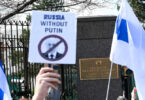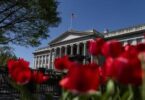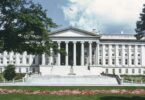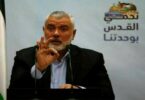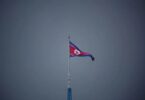ABUJA (AFP): West African leaders on Sunday kept sanctions imposed on Niger after a July military coup and demanded progress towards a short transition to civilian rule before easing the measures.
The Economic Community of West African States (ECOWAS) leaders met for a summit in Nigeria’s capital Abuja with the region in crisis after coups in Mali, Burkina Faso, Guinea and Niger since 2020 and two attempted coups elsewhere in recent weeks.
ECOWAS commission President Omar Touray said a heads of state group from Benin, Togo and Sierra Leone would engage with Niger regime’s CNSP leadership to decide on progress towards a transition and other conditions for lifting sanctions.
“Based on the outcomes of the engagement by the committee of heads of state with the CNSP, the authority will progressively ease the sanctions imposed on Niger,” Touray said at the closing of the summit.
“Failure by the CNSP to comply with the outcomes of engagement with the committee, ECOWAS shall maintain all sanctions.”
International attention has focussed on the region’s most recent coup in Niger, when troops ousted President Mohamed Bazoum on July 26, prompting ECOWAS to impose tough sanctions and suspend trade.
Under military rule, Niger — a key Western partner in the fight against Sahel militants — has demanded that French troops based there leave, while the US still has military personnel in the country.
The withdrawal of French troops from the Sahel — the region stretching along the Sahara across Africa — has heightened fears jihadist violence will spread southward to Gulf of Guinea ECOWAS states of Ghana, Togo, Benin and Ivory Coast.
But recent talks with the military regime in Niamey stalled. ECOWAS called for Bazoum’s immediate return to power, but Niger’s rulers have kept the ousted president in detention and want up to three years for a transition back to civilian rule.
Touray said ECOWAS recognised the “dire humanitarian” situation in Niger, but accused the rulers in Niamey of interfering with the flow of aid that was allowed into the country.
He did not say what would be considered an acceptable short transition for Niger back to civilian rule.
Nigeria’s President Bola Ahmed Tinubu is current chair of ECOWAS and US Assistant Secretary of State for African Affairs Molly Phee was also at the meeting to discuss how to support Niger’s return to democratic rule and Sahel security.
ECOWAS leaders also discussed the delayed or uncertain transitions back to civilian rule and elections for Mali, Burkina Faso and Guinea.
ECOWAS said it would lift travel restrictions on presidents, prime ministers and foreign ministers from those countries in transition to help advancing negotiations.
At the summit, Tinubu called for the “re-engaging with the countries under military rule on the basis of realistic and short transition plans”.
Mediator
Earlier this month, Nigeria said it was asking the Niger regime to free Bazoum and allow him to fly to a third country, as a step to opening talks on lifting sanctions.
But Niger’s military leaders rejected that option and have asked Togo’s President Faure Gnassingbe to act as a mediator.
Before Sunday’s ECOWAS meeting, Niger’s military leader General Abdourahamane Tiani and some of his ministers visited Togo on Friday to strengthen bilateral ties.
“Tiani is willing to talk over the length of the transition and over the situation with Bazoum,” said a Togolese diplomatic source.
ECOWAS has also left on the table the last option of a military intervention in Niger though analysts say that appears increasingly unlikely.
Since French troops began leaving the region, military regimes in Niger, Mali and Burkina — struggling with jihadist violence — have hardened their positions and joined forces in an “Alliance of Sahel States”.
“This phantom, push back-alliance appears intended to divert attention from our mutual quest for democracy and good governance,” Tinubu told the summit.
Last month, armed attackers stormed military posts, prisons and police stations in another ECOWAS member Sierra Leone, in what the government called a coup attempt that killed 21 people.
A week later Guinea-Bissau also denounced an attempted coup, with fighting between the national guard and special forces of the presidential guard.


